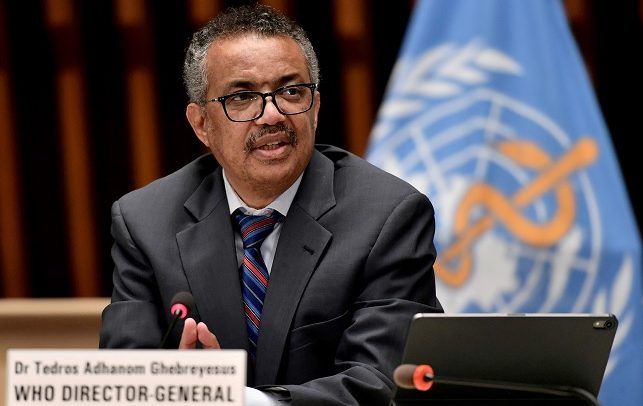Dr. Tedros Adhanom Ghebreyesus
Mpox, also known as Monkeypox, outbreak has been declared a global health emergency by the World Health Organisation (WHO) as cases continue to rise in Africa.
This follows a meeting by an independent experts’ committee yesterday, August 14, 2024, to assess whether the escalating spread of the Mpox virus in Africa warrants a global health emergency declaration.
Director-General of the WHO, Dr. Tedros Adhanom Ghebreyesus, who declared the state of emergency said, “Today, the emergency committee met and advised me that in its view the situation constitutes a public health emergency of international concern.
“I have accepted that advice. The detection and rapid spread of the new clade of Mpox in Eastern Democratic Republic of the Congo (DRC) and its detection in neighbouring countries that had not previously reported Mpox, and the potential for further spread in Africa and beyond is worrying.”
Earlier this week, the Africa Centres for Disease Control and Prevention (Africa CDC) announced that the Mpox outbreaks were a public health emergency, with more than 500 deaths, and called for international help to stop the virus’ spread.
The Africa CDC previously said that Mpox has been detected in 13 countries this year, and that more than 96% of all cases and deaths are in Congo.
Cases are up 160% and deaths are up 19% compared with the same period last year. So far, there have been more than 14,000 cases and 524 people have died.
“We are now in a situation where (Mpox) poses a risk to many more neighbours in and around central Africa,” said Salim Abdool Karim, a South African infectious diseases expert who chairs the Africa CDC emergency group.
He noted that the new version of Mpox spreading from Congo appears to have a death rate of about 3-4%.
Ghana’s Preparation
The Ghana Health Service (GHS) has indicated that it is updating its emergency response plans following an upsurge in monkeypox cases within the sub-region.
In 2022, Ghana recorded 120 monkeypox cases with four deaths and eight cases in 2023.
Director of Public Health, GHS, Dr. Franklin Asiedu Bekoe, said clinicians are already being re-trained for any early detection of a case since no cases have been recorded in the country yet.
“Early detection is what we are working with and thankfully, we have the reference lab that has also improved our case confirmation from relying on Noguchi alone previously. Sensitisation is also going on,” he outlined.
Cases
According to United Nations (UN) News, this year already saw over 14,000 reported cases of the virus with 524 deaths, a significant increase in reported cases from 2023.
The WHO Director-General previously mentioned that the Mpox outbreaks have occurred due to different viruses called clades.
At the expert meeting, he said there was transmission of the so-called clade 1b virus in the DRC last year which was caused “mainly through sexual networks”. This clade is reportedly deadlier and more easily transmitted from person to person.
Clade 1 has been circulating in the DRC for years while clade 2 was responsible for the global outbreak of 2022, which was declared an international public health emergency.
He said in the past month that around 90 cases of successor clade 1b were reported in countries neighbouring the DRC which had not reported Mpox cases before.
“Stopping these outbreaks will require a tailored and comprehensive response, with communities at the centre, as always,” he said.
Burundi and Rwanda are the latest to record cases, while Kenya and the Central African Republic are also having an increase in cases.
The Africa CDC reported a significant rise in Mpox cases.
The agency noted a 160% increase in cases compared to the same period last year, alongside a 19% rise in fatalities. Nearly 70% of cases and 85% of deaths in the DRC have occurred in children under the age of 15.
By Jamila Akweley Okertchiri


